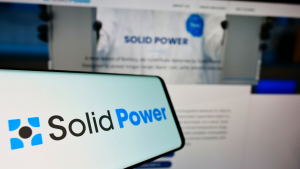
With the fallout in the electric vehicle space, contrarian investors may want to consider certain battery stocks to buy. This approach has a few advantages over targeting specific EV brands.
First, all EVs require an underlying power supply. Second, it’s difficult to tell which automaker will ultimately stand victorious following the bloodbath. It could be one of the legacy manufacturers or a pure-play enterprise. It’s a tossup.
Third, the political and ideological framework is pushing industries of all stripes to be carbon neutral if not net negative. Given this backdrop, these battery stocks to buy may have a bright future.
Albemarle (ALB)

While not a pure-play candidate for battery stocks to buy, Albemarle (NYSE:ALB) develops, manufactures and markets engineered specialty chemicals worldwide. It operates through three segments, though its Energy Storage unit gets the lion’s share of the spotlight. This segment deals with lithium compounds, including lithium carbonate, lithium hydroxide and lithium chloride.
As the lifeblood of EVs, the silver-colored metal presents significant implications for the future of mobility. Not only that, Albemarle takes much of the guessing out of the equation. Rather than betting on which automotive brand will drive the future, investors can take the more sensible approach of wagering on lithium. Every EV will need the metal.
Now, the downside to ALB stock is that it’s volatile. Over the past 52 weeks, it lost just over 29% of its equity value. Nevertheless, because of the red ink, lower than the sector median of 23.3X. To be fair, the EV fallout makes ALB somewhat shaky right now. Still, if you’re patient, this could be a discounted opportunity.
Toyota (TM)

As an automotive giant, Toyota (NYSE:TM) also ranks among the non-pure-play battery stocks to buy. However, that shouldn’t disqualify the Japanese manufacturer from consideration for your portfolio. While other legacy automakers have pivoted more aggressively to EVs, Toyota is no slouch. For example, it has invested heavily in the development of solid-state batteries (SSBs).
SSBs could be the holy grail of battery technology because of the underlying energy density. With one charge, an SSB-integrated EV could potentially drive for far greater distances than a regular-capacity EV. Further, charging up an SSB from empty should also be a much quicker affair.
Beyond the innovation in powerplants, Toyota has been absolutely killing the competition with its hybrid vehicles. While EV-only enterprises struggled badly amid the sector-wide price war and demand erosion, hybrids have been flying out dealership doors.
In other words, when Toyota is ready to commit to electrification, it should hit the pavement running with myriad innovations. In the meantime, its ringing the cash register by delivering cars that consumers want right now.
Solid Power (SLDP)

Saving the pure-play example among battery stocks to buy for last, Solid Power (NASDAQ:SLDP) also specializes in SSB technologies. It primarily serves the EV market though it also offers solutions for other sectors. Per its corporate profile, Solid Power sells its sulfide-based solid electrolyte and licenses its solid-state cell designs and manufacturing processes.
For those who can handle the wild twists and turns of speculative ideas, Solid Power could be intriguing. But it’s also a difficult enterprise to call. Since the start of the year, SLDP stock gained over 25% of equity value. However, in the past 52 weeks, it’s down almost 23%. Since making its public market debut, Solid Power hemorrhaged nearly 83%.
Still, speculators will probably point out that since January of this year, SLDP has been charting a series of higher lows. Also, for the current fiscal year, analysts are looking for sales to reach $21.33 million. If so, we’re talking about 22.5% growth from last year’s print of $17.41 million. It’s risky but it could be worth a shot.
On the date of publication, Josh Enomoto did not have (either directly or indirectly) any positions in the securities mentioned in this article. The opinions expressed in this article are those of the writer, subject to the InvestorPlace.com Publishing Guidelines.




